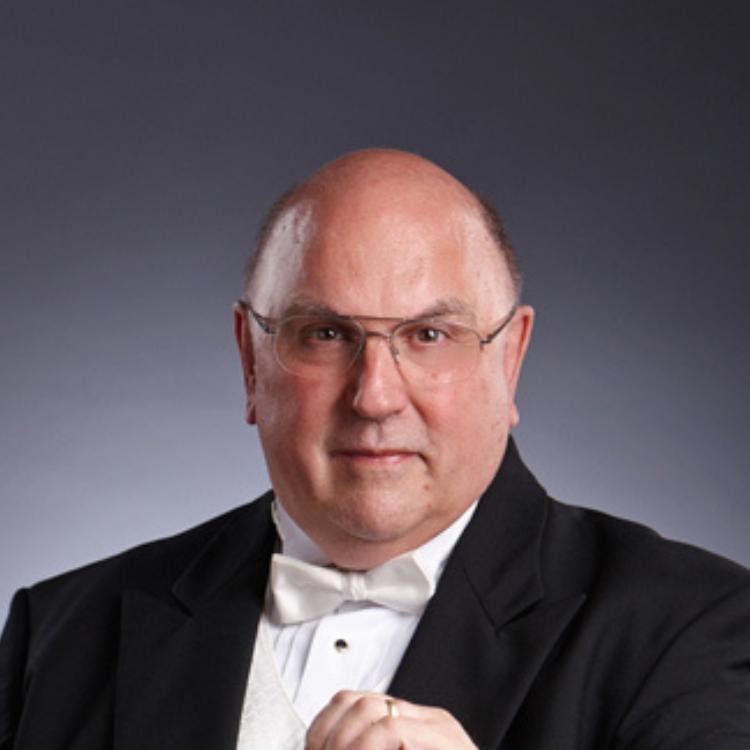
No. 7 - Music, Worship, and Evangelism
The writings of Robert E. Webber (1933 – 2007), taken as a whole, are essential reading for anyone hoping make sense of the complexities of the Christian landscape in 21st century America. They are also, in my view, irreplaceable as guide to ministry during these challenging times.[1] In Worship Is a Verb (1992), Webber recalled growing up in a fundamentalist household and struggling with a faith that placed Christian witness above all other things in importance. In 1968, he joined the theology faculty at Wheaton College, and while preaching on the subject of worship to the college chapel, he found his views on evangelism evolving:
First, I began to see that the primary work of the church is worship. . . Evangelism is an exceedingly important work of the church as are teaching, fellowship, servanthood, missions, and the healing of broken lives. But it is worship, I gradually discovered, that really stands behind all of these activities. The church is first a worshipping community. Evangelism, and other functions of ministry flow from the worship of the church.[2]
Webber first attained notoriety with the publication of Evangelicals on the Canterbury Trail (`1978), a collection of essays by former evangelicals who had been influenced by Anglo-Catholic and Catholic worship practice.
Evangelism! It is one of the most powerful words in the Christian lexicon. Derived from the Greek euangélion and the Middle English, evaungel, meaning “good news”. An evangelist then was one who told the story of Jesus. In the early church, the designation evangelist was used to describe writers of the gospels, but since the Protestant Reformation the term’s meaning has expanded to preachers and a variety of people committed to work in the mission field.
Church musicians in the 21st century live in a divisive and fractious time when the chasm separating social, political, and religious polarities seems impossible to bridge. Our use of language can either facilitate inclusive ministry or negate it. The baggage we pile onto the words evangelism and its derivatives, evangelical, evangelist, and evangelicalism are an excellent example.[3] The word “evangelism” has become unfairly harnessed to conservative and fundamentalist ideologies which have overshadowed its broad overarching mandate for all of us. While Christians may differ on issues of Biblical inerrancy, regenerative or “born again” theology, and the need to proselytize,[4] the mandate to witness remains. To re-emphasize – in its original sense, an evangelist was one called to share the good news of Jesus Christ. There are no rigid stipulations regarding one’s office or training. It is an open mandate and certainly one to be embraced by anyone in ministry in the church.
Church historian, Gerald L. Sittser, has cited the lives and work of John and Charles Wesley as an example of evangelism in its broadest form, and why making the evangelism the exclusive property of the conservative church a mistake. “They were born, raised, and died as Anglicans,” Sittser writes, “which means that, even after their conversions and the founding of the Methodist movement, they still used the Book of Common Prayer. They had a deep root system in the Anglican tradition.”[5] John Wesley, in particular, weathered condemnation from Anglican traditionalists by ministering in the open air to miners and prostitutes. He visited London’s largest synagogue and recast a melody he heard there as a Christian hymn.[6] The list goes on. He raised eyebrows by gaining admission to the infamous asylum, Bedlam, and helping establish a ministry to the mentally ill there. Wesley was a vocal opponent of slavery long before it was outlawed in Britain. His preaching elicited outbursts of spiritual zeal among many followers, and he referred to the indwelling of the holy spirit as a state of “sanctification”., a term still embraced by African-American Pentecostals. Were the Wesley’s evangelicals? Obviously! But they were far from conservative theologically and would never have met the rigid specifications of evangelicalism?
The message I am trying to impart here goes deeper than how we use a few words. When a word like evangelical generates, unbidden, a raft of assumptions, it has a direct and often detrimental effect on our work as church musicians. For traditionalists in our profession, it is common to reject the music of certain composers out of hand simply because they are identified as evangelicals. Composers themselves are likely to use or avoid certain stylistic choices and chord progressions because they “sound” evangelical. Publishing companies sometimes buy into this, aligning themselves either with mainline and liturgical sects or evangelical ones to maximize profits.
Friends, the congregations we serve are not one-dimensional! They are communities populated with a range of musical tastes and divergent biblical understandings. Our passion as church music professionals must be to reach out effectively to all, helping them to grow in their walk of faith. That is our evangelistic mandate in worship. There is also a personal mandate. Whatever our denominational affiliation or theological stance, we are in this to witness to the communities we serve. We are evangelists, and we must not allow that wonderful, powerful concept to be highjacked. Our witness IS both musical and pastoral. Our interactions with the congregations and musicians under our care will represent the face of the church for many. Whether our witness is through testimony or implicit in our leadership – the end result should be evangelism.
Best wishes and Peace,
Stan McDaniel
[2] Robert E. Webber, Worship is a Verb, p7.
[3] Note: Evangelism, as referred to here, is the preaching and propagation of the Christian Gospel. Evangelical is the adjective form meaning that a subject – a church, an individual, a type of worship for example – reflects the message of the gospels. Evangelists are individuals – preachers, musicians, even the “priesthood of all believers” – whose lives are devoted to gospel witness. “Evangelicalism”, a term that seems to have come into use in the early 19th century, refers to those evangelicals for whom regeneration or being “born again” is a requirement to be considered a Christian. [Source: English Language & Usage Stack Exchange. https://english.stackexchange.com/questions/265116/what-is-the-difference-between-evangelism-and-evangelicalism ]
[4] Note: For an excellent summary to evangelism from the conservative viewpoint, see John C. Green’s statement in “The Jesus Factor: Evangelicals versus Mainline Protestants”. https://www.pbs.org/wgbh/pages/frontline/shows/jesus/evangelicals/evmain.html
[5] From “Jerry Sittser, A Bridge Between Academyt & Church” (blog) https://www.jerrysittser.com/blog/evangelicalism)
[6] Note. “The God of Abraham Praise”, Tune: LEONI>

AUTHOR
Stan McDaniel
©2023 Stanley R. McDaniel, All Rights Reserved.
Copying or re-publication is expressly prohibited without direct permission of the author.

